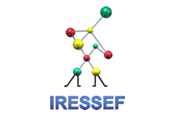This position requires residency in Africa.
We are pleased to announce an open recruitment for the Population-Based HIV Impact Assessment (PHIA) Fellows Program. This program was developed to promote laboratory medicine practice among young laboratory professionals to support efforts of the President’s Emergency Plan for AIDS Relief (PEPFAR) to control the HIV epidemic on the continent of Africa.
Fellowship Program Objectives:
Fellows will support the PHIA program through activities such as:
- Conducting epidemiologic surveys
- Implementing quality improvements of diagnostic testing
- Mapping specimen referral systems
- Implement HIV viral load testing
- Providing survey support outside of the traditional laboratory setting
The program will also focus on the importance of accurate and reliable diagnosis, evaluation and appropriate use of diagnostics, Point of Care Testing, and various biomarkers to assess the burden of disease in the community and or manage patients.
Fellowship Detail:
This fellowship will require frequent and lengthy deployments to a variety of PEPFAR countries.
- Fellowship Management and Support: The Fellowship is managed through collaboration with IRESSEF and Heart to Heart International.
- Duration: 1 Year (Individual Fellowship Agreements may be extended as needed)
- Locations: African residency/citizenship required. Position requires extensive international travel to multiple countries including (but not limited to) Botswana, Eswatini, Ethiopia, Haiti, Lesotho, Malawi, Mozambique, South Africa, Uganda, Zambia, and Zimbabwe.
- Compensation: IRESSEF/Heart to Heart will provide a monthly stipend for PHIA Fellows. The organizations will also facilitate and cover the required expenses for official travel to support technical assistance visits and trainings for upcoming surveys in selected countries.
Eligibility Criteria:
Eligible applicants should:
- Have a Bachelor, MD, MPH, Masters or Doctorate degree in biological sciences with a strong interest in applied diagnostics and public health.
- Be eligible to work in the above listed countries.
- Have prior PHIA survey experience.
- Have field experience and a thorough understanding of quality assurance elements that include pre-testing, testing, and post-testing steps.
- Possess a thorough understanding of quality management systems
- Demonstrate a strong ability to work independently.
- Be proficient with data management tools and software programs.
- Possess strong computer skills, including a thorough working knowledge of computer programs such as Microsoft Office.
- Possess and demonstrate excellent oral and written communication skills.
- Possess ability to work closely with patients and the general public.
- Be highly organized and motivated.
The applications are due by 11 March 2020. The following documents are needed:
- A detailed CV
- Three letters of recommendation
- A cover letter, including a one-page summary explaining:
- Why working in public health, specifically laboratory sciences, is of interest to you
- Your career goals and how this fellowship will support them
- Any skills that you possess which would make you an asset to this program and why you think those skills are important to the multi-agency efforts to control the HIV epidemic.
Apart from educational qualifications, successful candidates will have related field experience and excellent communication skills. Prior experience as a trainer may be advantageous.
ONLY successful candidates shall be contacted for a follow-up interview or questionnaire

